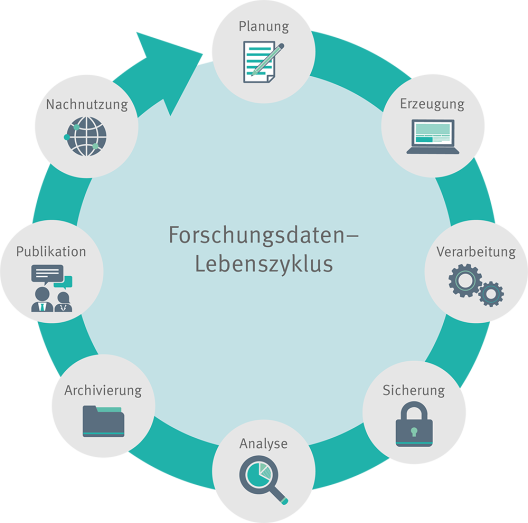Research data management

Practically every research process generates a wide variety of digital data: Photos, scans, numerical measurement data, transcriptions, videos, ... This data, which is usually generated at great expense, must be adequately indexed, processed, made available for subsequent use and archived in accordance with the FAIR principles. All of this is part of research data management.


